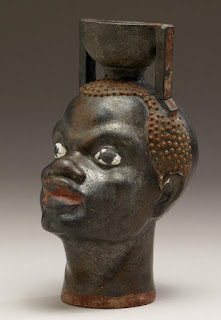Modern Greece built on myth
ATHENS – Greece is the cradle of democracy, but as the world has seen recently, a financial crisis is no time to put important questions to the people. Prime Minister George Papandreou’s proposed referendum on the country’s loan deal with the European Union, called off quickly after intense international opposition, illustrated that perfectly.
Plato and Aristotle would have approved of dropping the referendum. They didn’t like democracy of the direct kind. Neither trusted the people that much.
Sinking deeper into the gravest economic crisis in its postwar history, Greece is no nearer to finding an exit from its woes. A toxic mix of anxiety and fear hangs in the air in Athens. The ordeal shows that living up to lofty idealism is never easy. Modern Greeks know that well for we are, in many ways, the imperfect reflection of an ideal that the West imagined for itself.
When the Greek crisis began two years ago, the cover of a popular German magazine showed an image of Aphrodite of Milo gesturing crudely with the headline: “The fraudster in the euro family.” In the article, modern Greeks were described as indolent sloths, cheats and liars, masters of corruption, unworthy descendents of their glorious Hellenic past.
The irony was that modern Greece has little in common with Pericles or Plato. If anything, it is a failed German project.
In 1832, Greece had just won its independence from the Ottoman Empire. The “Big Powers” of the time, Britain, France and Russia, appointed a Bavarian prince, Otto, as Greece’s first king. Otto arrived with German architects, engineers, doctors and soldiers and set out to reconfigure the country to the romantic ideal of the times.
The 19th century had seen a resurgence of Europeans’ interest in ancient Greece. Goethe, Shelley, Byron, Delacroix and other artists, poets and musicians sought inspiration in classical beauty. They longed for a lost purity in thought, aesthetics and warm-blooded passion.
Revisiting the sensual Greece of Orpheus and Sappho was ballast to the detached coolness of science or the dehumanizing onslaught of the Industrial Revolution.
Otto ensured that modern Greece lived up to that romantic image. Athens, then a small hamlet, was inaugurated as the capital. The architects from Munich designed and built a royal palace, an academy, a library and beautiful neoclassical edifices. Modern Greece was thus invented as a backdrop to contemporary European art and imagination, a historical precursor of many Disneylands to come.
Otto was eventually expelled by a coup. But the foundations of historical misunderstanding had been laid, to haunt Greece and its relations with itself and other European nations forever.
No matter what Otto may have imagined, the truth was that my forefathers, the brave people who started fighting for their freedom against the Turks in 1821, had not been in suspended animation for 2,000 years. Although their bonds with the land, the ruined temples and the myths were strong, they were not walking around in white cloaks with laurel wreaths. They were Christian orthodox, conservative and fiercely antagonistic toward their governing institutions. In other words, they were an embarrassment to all those folks in Berlin, Paris and London who expected resurrected philosophers sacrificing to Zeus.
The profound gap between the ancient and the modern had to be bridged, to satisfy Europe’s romantic expectations of Greece. So a historical narrative was put together claiming uninterrupted continuity with the ancient past, which became the central dogma of Greek national policy and identity.
Growing up in Greece in the 1970s, I had to learn not one but three Greek languages. First was the demotic parlance of everyday life. But at school, we were taught something different: “katharevousa” (“cleansed”), a language designed by 19th-century intellectuals to purify demotic from the cornucopia of borrowed Turkish, Slavic and Latin words.
Finally, we had to study ancient Greek, the language of our classical ancestors, the heroes of Marathon and Thermopylae. Most of us managed to learn none of the three, ending up mixing them in one grammatically anarchic jargon that communicated the confusion of our age.
Greek society suffers from an equal number of divisions.
First is the political class that for almost two centuries now has shown subservience to foreign masters. They discovered early that claiming to be Euripides’ relative goes a long way toward procuring handsome loans and diplomatic sympathies.
The geopolitical position of Greece, controlling shipping routes from the Black Sea to the Mediterranean, also helps. No wonder that modern Greece never became truly independent. It has always been much too easy to be dependent on foreign power and capital.
Becoming a member of the European Union and of the eurozone, only to amass a titanic debt, has been the latest chapter in this modern odyssey.
Second, the intellectuals dream of a truly Westernized Greece through some miracle of economic and social science. When the loan referendum was announced, most of them opposed it. Greece had to show that it belonged to the European family of nations, whatever that may mean. Rebellion was not to be tolerated, lest the country was kicked out of the euro, the symbol of Greek westernization.
Ultimately the intellectuals and politicians, with persuasion from angry European leaders and technocrats, had the referendum quashed. Besides, the invention of fantastical modern Greece demanded that its people, the third division of society, also remained imaginary.
Naturally, they are real as anything. They despise the loss of their sovereignty as well as the bitter medicine prescribed by their European brethren for their “rescue.” Austerity enforced by unelected officials from the European Commission, the International Monetary Fund and the European Central Bank is perceived as not remedy but punishment, a distasteful concept to the orthodox Greeks whose core value is mercy.
Burdened with the improbable weight of forefathers who supposedly laid the foundations of Western civilization, driven by strong cultural undercurrents that undermine the state’s authority, they long for the realization of a dream promised by their political class: that Greece can somehow be something different than the rest of the world, a utopia where mortals can live like Olympians.
Like the children of famous parents they could never possibly surpass, they bask in impossible desires, unable to summon the self-confidence to make their own way in the world.
The Greek financial crisis is a crisis of identity as much as anything else. Unless the people redefine themselves, this could become the perfect catastrophe: a country designed as a romantic theme park two centuries ago, propped up with loans ever since, and unable to adjust to the crude realities of 21st-century globalization.
George Zarkadakis is the author of the novel “The Island Survival Guide.”



